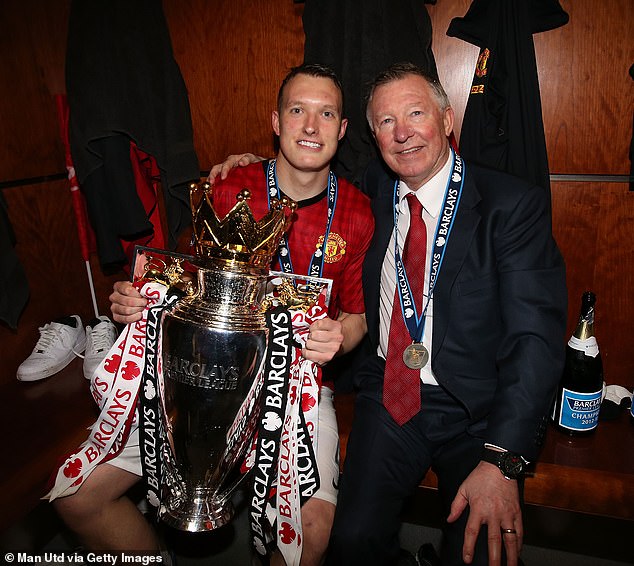A year after hanging up his boots, Phil Jones is seeing his footballing journey in a completely new light.
The former Manchester United defender, who retired at 32 following relentless knee injuries, is now turning his focus to coaching and potentially management.
Where once he struggled with the shame of injuries and social media abuse, he now finds lessons in every setback.
“It’s been tough, but those challenges will actually help me going forward,” Jones admits.
“What I went through physically and mentally as a player will be invaluable when working with young men in a dressing room.”
The Human Side of Coaching
Jones is clear: being tactically brilliant is only part of the job.
Understanding, relating to, and nurturing players is just as crucial.
“Players need to feel warmth,” he explains. “It’s not enough to just point out mistakes.
You have to take them on a journey—show them why, how they can improve, share your own experiences.
If you just say ‘you’re not good enough,’ that doesn’t cut it. Your job is to make them good enough.”
This thoughtful approach is something Jones has cultivated while completing his coaching badges, working with Manchester United’s youngsters at Carrington for two seasons.
He is confident that learning to balance tactical knowledge with human connection is key to long-term success in management.
Learning the Ropes
Jones’ journey into coaching has been deliberate and structured.
After earning his A Licence, he worked closely with United’s academy director to deepen his understanding of the game from a coaching perspective.
“I didn’t want to rush straight into a manager’s role,” Jones says.
“Just because you’ve played at United doesn’t mean you’re automatically ready for the top jobs.
I’ve taken my time, learned with the kids on the grass, and now I see football in a whole new way—patterns, systems, tactical setups. It’s fascinating.”
He’s realistic about his next steps. “Do I think I’m ready to be a manager? No, not yet. But I do feel I could add value to a team.
I’ve learned from some fantastic managers and players, and now I want to put that into practice.”
Navigating the Managerial World
Stepping into coaching isn’t just about knowledge—it’s also about connections.
Jones admits he’s still getting used to the social side of the game.
“When I played, I didn’t network or chase validation,” he says.
“Now, I see how important relationships are—who you know, who you’ve worked with. It’s a puzzle, and I’m learning how to fit the pieces together.”
Despite this, his passion for football remains undiminished.
He watches games across leagues and levels, constantly studying and learning, eager to bring his insights into coaching.
Keeping Tabs on the Game
Jones hasn’t lost touch with the excitement of matchdays.
Recently, he attended Wrexham’s game against QPR, sparking social media buzz when he was seen alongside Ryan Reynolds.
The truth? He was invited by chief executive Michael Williamson, with whom he shares a long-standing friendship.
“Nothing surprises me about social media,” he laughs. “People will link you to anything.
But I was there to enjoy the football and observe. Wrexham have done brilliantly with back-to-back promotions, and Phil Parkinson deserves huge credit.”
Thoughts on Manchester United and Amorim
Turning his attention to his old club, Jones reflects on United’s current head coach Ruben Amorim and the pressure he faces.
With a trip to Anfield looming, Jones recognizes the precarious balance of results and support.
“It’s a results business,” he says. “You could have a long contract, but if results don’t come, questions will be asked.
I’d love to see Amorim succeed, do really well, maybe even win a trophy. That’s the hope.”
The Thrill of the Big Games
Jones remembers his last trips to Anfield vividly—the highs, the lows, and the intensity of the rivalry.
“There’s nothing better than winning at Liverpool,” he says.
“The media build-up, the atmosphere, the history—it’s intense, it’s frantic, but it’s a dream for any player to be part of it. If you can win there, it’s unforgettable.”
For Phil Jones, the journey continues—this time from the sidelines, with wisdom forged in adversity and a passion for the beautiful game that shows no signs of fading.
Share on Facebook «||» Share on Twitter «||» Share on Reddit «||» Share on LinkedIn
